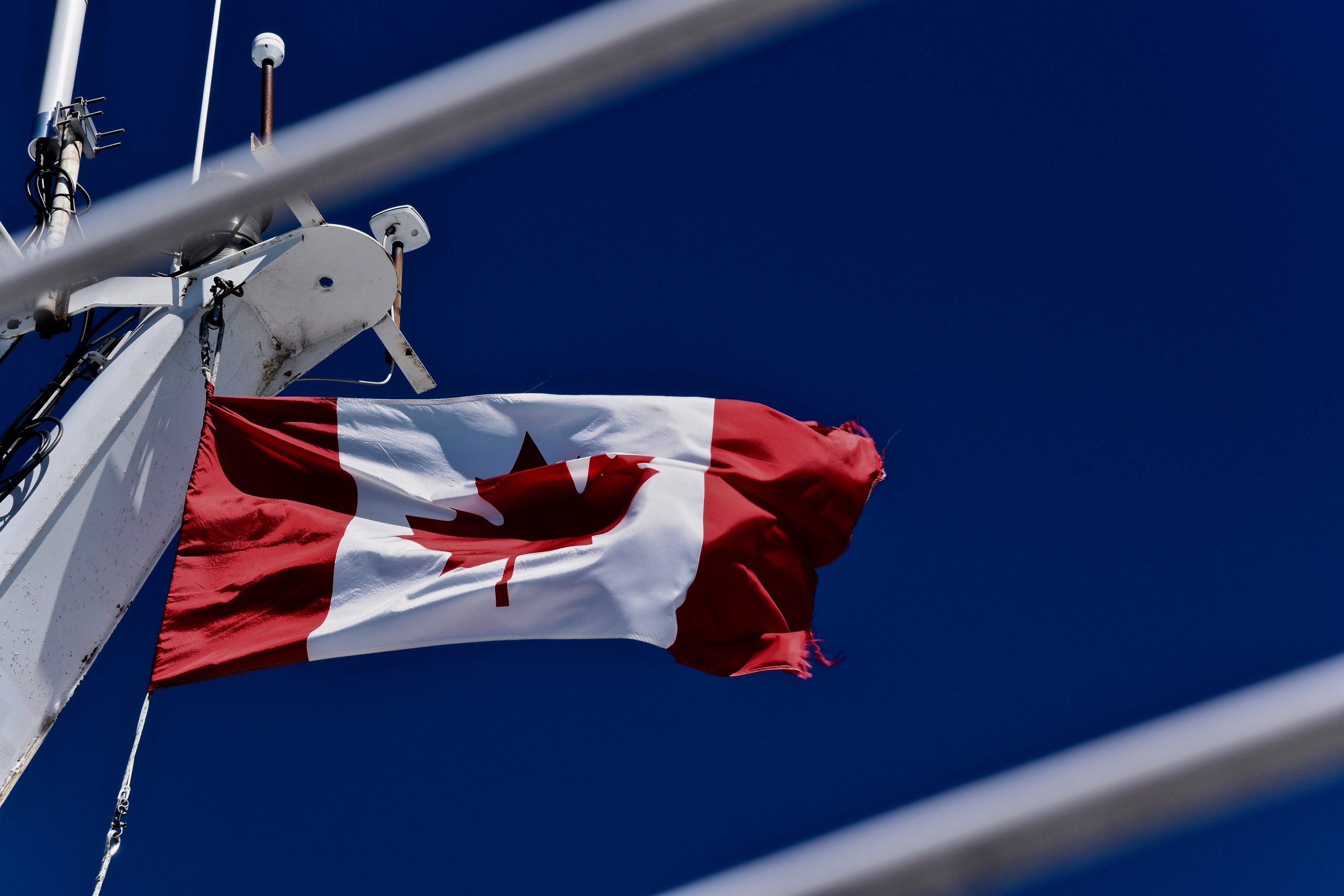Is Canada a Good Place to Live?
In recent years, Canada has become a popular destination for people worldwide looking for a better place to live, start a new career, and have great educational opportunities. Canada is a good place to live. It is a beautiful country with a diverse population, plenty of natural resources, and ample space for expansion. As a result of a low unemployment rate and a strong economy, the standard of living in Canada is generally high. People also prefer to move to Canada because of the public healthcare system every Canadian has access to.
Safety
According to the Global Peace Index, Canada remains the sixth safest country in the world since 2019. For internal conflicts, crime levels, and political stability, Canada’s scores were particularly good as well.
Natural Beauty
Canada is known for its stunning natural beauty. From the West Coast to the East Coast, breathtaking nature views can be observed.
Diversity
With over 21% of the population being immigrants, Canada is a very diverse country. At every corner of the street in major cities you will find delicious food from all over the world.
Free Healthcare
Healthcare is free in Canada for all permanent residents and citizens meaning that hospital and physician visits are free. Each province also has a medication program allowing its population to access medication at an affordable price.
(*Statistics Canada & Canada Action)
Canada Visa Requirements
Getting a visa is the most important requirement for moving to Canada from Australia. Depending on whether you’re moving to Canada for work or to move in with a family member, the type of Visa you’ll need will differ.
Immigration to Canada through Express Entry
If you plan to stay in Canada permanently as a skilled immigrant, Express Entry offers 3 programs that allow you to apply for a Canadian permanent residency:
Visit the Government of Canada website to learn about each program in order to choose a specific one. But basically, the 3 programs use a points-based system to rank your profile in the Express Entry pool, taking into account factors such as your age, work experience, skills, education, and language ability.
Note that you are eligible for these programs only if you plan to live outside the province of Quebec. Otherwise, you can still submit your application through the Quebec-selected skilled worker program. You should however be aware that it would be a longer process.
Canada Work Visa
A Canada Work Permit, or Work Visa, is issued to eligible overseas individuals to work in that country for a specific period. A Work Visa can only be applied for after a job offer, or employment contract is received from a Canadian employer. It is not necessary for everyone moving to Canada from Australia to have a work permit. However, it is necessary to determine whether you require a work permit before beginning the process.
Canada has two types of work permits: employer-specific work permits, and open work permits. Citizens of Australia usually do not need a visa to visit Canada for a short time. For those with other types of Australian nationality or who intend to travel for an extended period (for example, for work), contact the Canadian High Commission for further information regarding entry requirements.
Working Holiday Visa Canada
International Experience Canada (IEC) Working Holiday Visa is a Canadian government program that allows people between 18 – 35 years of age from carefully selected countries to work in Canada. A Canadian IEC program is probably your best option if you’re under 30 and plan on moving to Canada from Australia. Recently, the demand for IEC has increased, making it a bit more challenging to obtain.
Canada Student Visa
Usually, a Canada Student Visa or study permit is valid for the duration of your program of study plus 90 additional days. During your 90 days in Canada, you can prepare to leave the country or extend your stay. If you are moving to Canada from Australia, you can obtain a Canada student visa if you are enrolled at a designated learning institution (DLI). You must show that you have enough funds to cover tuition fees and living expenses for yourself and any family members who accompany you to Canada.
Among other eligibility requirements, you also have to prove you can cover the costs of the return transportation for you and any family members accompanying you to Canada. Your study permit may include conditions such as whether you can work in Canada, whether you can travel in Canada, the specific date when you must leave Canada, where you may study (a specific DLI listed on your permit), and whether you must submit to an immigration medical exam.
Spouse Visa Canada
The Spouse Visa Canada allows you to sponsor your spouse, partner, or dependent children to become permanent residents of Canada. If you do, you must be able to support them financially and make sure they don’t need social assistance from the government. You can sponsor your spouse, partner, or dependent child if you’re at least 18 years old and you’re a Canadian citizen, a permanent resident of Canada.
If you’re a Canadian citizen living outside Canada, you must show that you plan to live in Canada when the persons you want to sponsor become permanent residents. You are also eligible for this if you’re able to prove that you’re not receiving social assistance for reasons other than a disability, and you can provide for the basic needs of any persons you want to sponsor. Also, note that your spouse must be legally married to you and be at least 18 years old.
Canada Visa Processing Time
The Canada Visa Processing Time will vary depending on the visa type and time of application. The processing time starts when the immigration centre receives your complete application and ends when they decide. Typically, Canada work or study permit processing times are between 10 and 12 weeks. If you apply by mail, the time starts when your application arrives in their mailroom. If you apply online or in person, it starts when you submit your application. Most processing times are historical, meaning they’re measured based on how long it took to process 80% of applications in the past. For some permanent resident applicants who have not applied yet, their processing times are projected, meaning the centre measures them based on how quickly they expect to process 80% of the applications.
Cost of Living in Canada vs Australia

The cost of living for one person in Canada is AU$2234 (2031 CAD) whereas in Australia it’s AU$2538 (2280 CAD) per month.
|
Category |
Average cost Australia |
Average cost Canada |
Variation |
|
Rent price 1-bed flat outside city centre |
AU$1304 (1186 CAD) |
AU$1269 (1140 CAD) |
Rent is 4% more expensive in Australia. |
|
Utilities |
AU$292 (CAD 259) |
AU$342 311 CAD) |
Utilities are 20% more expensive in Canada. |
|
Groceries |
AU$612 (CAD 549) |
AU$330 (300 CAD) |
Groceries are 45% cheaper in Canada. |
|
Mobile phone plan |
AU$81 (CAD 74) |
AU$111 (101 CAD) |
Cell phone plans are 27% cheaper in Australia. |
|
Dinner in a mid-range restaurant |
AU$35 (38 CAD) |
AU$42 (38 CAD) |
Dinner in a mid-range restaurant cost the same in Canada and Australia. |
|
Public transport pass |
AU$147 (134 CAD) |
AU$99 (90 CAD) |
Public transport passes are 33% cheaper in Canada. |
|
Gym membership |
AU$67 (61 CAD) |
AU$56 (51 CAD) |
Gym memberships are 20% more expensive in Australia. |
|
Total |
AU$2538 (2280 CAD) |
AU$2234 (2031 CAD) |
The cost of living in Canada is 11% cheaper than in Australia. |
(*Australian Government, Numbeo Australia & Canada, Insider Guides, Lowest Rates, MovingWaldo,CRTC & Moneysmart)
Canada’s Taxes
Canada has some of the highest sales and income taxes in the world. Provincial/territorial income taxes vary by province and range from 4% to 25.75%. Canada’s sales taxes also vary by province and range from 5% to 15%.
|
Province |
Sales Tax Rates |
Income Tax Rates |
|
Alberta |
5% |
10% on the first $131,220 of taxable income, + 12% on the next $26,244, + 13% on the next $52,488, + 14% on the next $104,976, + 15% on the amount over $314,928 |
|
British Columbia |
12% |
5.06% on the first $42,184 of taxable income, + 7.7% on the next $42,185, + 10.5% on the next $12,497, + 12.29% on the next $20,757, + 14.7% on the next $41,860, + 16.8% on the next $62,937, + 20.5% on the amount over $222,420 |
|
Manitoba |
12% |
10.8% on the first $33,723 of taxable income, + 12.75% on the next $39,162, + 17.4% on the amount over $72,885 |
|
New Brunswick |
15% |
9.68% on the first $43,835 of taxable income, + 14.82% on the next $43,836, + 16.52% on the next $54,863, + 17.84% on the next $19,849, + 20.3% on the amount over $162,383 |
|
Newfoundland and Labrador |
15% |
8.7% on the first $38,081 of taxable income, + 14.5% on the next $38,080, + 15.8% on the next $59,812, + 17.3% on the next $54,390, + 18.3% on the amount over $190,363 |
|
Nova Scotia |
15% |
8.79% on the first $29,590 of taxable income, + 14.95% on the next $29,590, + 16.67% on the next $33,820, + 17.5% on the next $57,000, + 21% on the amount over $150,000 |
|
Ontario |
13% |
5.05% on the first $45,142 of taxable income, + 9.15% on the next $45,145, + 11.16% on the next $59,713, + 12.16% on the next $70,000, + 13.16% on the amount over $220,000 |
|
Prince Edward Island |
15% |
9.8% on the first $31,984 of taxable income, + 13.8% on the next $31,985, + 16.7% on the amount over $63,969 |
|
Quebec |
14.97% |
$45,105 or less: 5% More than $45,105 but not more than $90,200: 20% More than $90,200 but not more than $109,755: 24% More than $109,755: 25.75% |
|
Saskatchewan |
11% |
10.5% on the first $45,677 of taxable income, + 12.5% on the next $84,829, + 14.5% on the amount over $130,506 |
|
Northwest Territories |
5% |
5.9% on the first $44,396 of taxable income, + 8.6% on the next $44,400, + 12.2% on the next $55,566, + 14.05% on the amount over $144,362 |
|
Nunavut |
5% |
4% on the first $46,740 of taxable income, + 7% on the next $46,740, + 9% on the next $58,498, + 11.5% on the amount over $151,978 |
|
Yukon |
5% |
6.4% on the first $49,020 of taxable income, + 9% on the next $49,020, + 10.9% on the next $53,938, + 12.8% on the next $348,022, + 15% on the amount over $500,000 |
Federal Income Tax Rates
In addition to provincial/territorial tax rates, salaries in Canada are subject to federal income tax rates. On average, Canadians are taxed 15% to 33% in federal income taxes on their salaries.
- The first $49 020 of taxable income is taxed at 15%.
- The next $49 020 is taxed 20.5% (up to $98 040).
- The next $53 939 is taxed 26% (up to $151 978 based on a taxable income of over $98 040).
- The next $64 533 is taxed 29% (up to $216 511 on taxable income of over $151 978).
- In addition to 33% being taxed on incomes over $216 511.
(*Canada)
Healthcare in Canada
Canada offers free healthcare to its residents and citizens. Healthcare in Canada is free for doctor visits and hospital visits, but while medicine is partly covered, it’s not free. When moving to Canada from Australia, you will not necessarily be automatically eligible for the free healthcare that Canada offers unless you are a permanent resident. If you are moving to Canada temporarily, you will have to purchase private health insurance.
In Demand Jobs in Canada
There are many jobs in Canada for Australian citizens and more so in specific sectors. Here are the most in demand jobs in some of Canada’s major provinces:
Ontario
- Industrial painters
- Industrial butchers
- Machine operators (specifically for mineral and metal processing)
- Agriculturists and harvesters
- Truck drivers
- Orderlies and nurse assistants
- Residential installers
Quebec
- It technicians
- Orderlies and nurse assistants
- Electrical engineers
- Welders
- Nurses
- Early childhood educators
- Media developers
- Civil engineering technicians
British Columbia
- Carpenters
- Hairdressers and barbers
- Construction workers
- Mechanics
- Cooks
- Heavy equipment operators
- Mechanics and millwrights in construction
- Welders
- Electricians
- Bakers
Alberta
- Truck drivers
- Administrative assistants
- Receptionists
- Early childhood educators
- Administrative officers
- Home builders and renovation managers
- General office workers
- Accounting technicians and bookkeepers
- Oil sands labourers
- Anesthesiologists
(*Jobboom, Immigration.ca & WorkBC)
Canada Minimum Wage (2021)
The average minimum wage in Canada is $15 (AU$16.70) per hour. Below is a chart with the minimum wage in each province/territory.
|
Province |
Minimum Wage (per hour) |
|
Alberta |
$15.00 |
|
British Columbia |
$15.20 |
|
Manitoba |
$11.95 |
|
New Brunswick |
$11.75 |
|
Newfoundland and Labrador |
$12.50 |
|
Nova Scotia |
$12.95 |
|
Ontario |
$14.35 |
|
Prince Edward Island |
$13.00 |
|
Quebec |
$13.50 |
|
Saskatchewan |
$11.81 |
|
Northwest Territories |
$15.20 |
|
Nunavut |
$16.00 |
|
Yukon |
$15.20 |
(*Savvy New Canadians & JDSUPRA)
Average Salary in Canada
The average salary in Canada is around $54 000 (AU$60 140) per year. Below is a chart with the average salary in each province/territory.
|
Province |
Average Salary |
|
Alberta |
$61 865 |
|
British Columbia |
$53 416 |
|
Manitoba |
$49 661 |
|
New Brunswick |
$49 511 |
|
Newfoundland and Labrador |
$55 508 |
|
Nova Scotia |
$48 470 |
|
Ontario |
$55 524 |
|
Prince Edward Island |
$45 912 |
|
Quebec |
$51 735 |
|
Saskatchewan |
$54 371 |
|
Northwest Territories |
$77 670 |
|
Nunavut |
$87 355 |
|
Yukon |
$61 812 |
(*Insurdinary & Canada Visa)
Best Cities to Live in Canada
The best cities to live in Canada have relatively affordable housing, are safe, will keep you entertained, have good schools, have good job opportunities and are family-friendly.
- Ottawa, Ontario
- Calgary, Alberta
- Burlington, Ontario
- Quebec City, Quebec
- Saskatoon, Saskatchewan
Canada’s Real Estate
People, especially homebuyers, shouldn’t be surprised that housing prices have been steadily rising in Canada. There has been a 375% increase in home prices nationwide over the past two decades, while in hot markets such as Toronto and Vancouver, the increase has been even greater, at 450% to 490 %, respectively. According to the Canadian Real Estate Association, the average price of a home today is $686 650 (AU$764 657) in Canada. House prices jump to $887 290 (AU$987 996) in Ontario and to $913 471(AU$1 016 994) in British Columbia. Even smaller markets such as Tillsonburg, Ontario, or Bancroft, Ontario, see rising home prices as remote workers and families move out of the cities to less crowded areas.
House Prices in Canada
The average house price in Canada is $686 650 (AU$763 736). Below is a chart with the average house price in each province/territory.
|
Province |
Average House Price |
|
Alberta |
$401 705 |
|
British Columbia |
$913 471 |
|
Manitoba |
$321 504 |
|
New Brunswick |
$262 200 |
|
Newfoundland and Labrador |
$321 700 |
|
Nova Scotia |
$356 757 |
|
Ontario |
$887 290 |
|
Prince Edward Island |
$335 202 |
|
Quebec |
$459 955 |
|
Saskatchewan |
$286 600 |
|
Northwest Territories |
$360 030 |
|
Nunavut |
$641 831 |
|
Yukon |
$542 515 |
(*National Post, Canadian Real Estate Wealth, Nunavut News & Canada Real Estate Association)
Canada’s Weather
The average weather in Canada during summer is 22°C and during winter it is -7°C.
Average weather during the summer and winter across Canada
|
Province |
Summer Temperature |
Winter Temperature |
|
Alberta |
22°C |
-10°C |
|
British Columbia |
25°C |
7°C |
|
Manitoba |
21°C |
-14°C |
|
New Brunswick |
24°C |
2°C |
|
Newfoundland and Labrador |
25°C |
0°C |
|
Nova Scotia |
24°C |
-4°C |
|
Ontario |
25°C |
-5°C |
|
Prince Edward Island |
24°C |
-7°C |
|
Quebec |
24°C |
-11°C |
|
Saskatchewan |
24°C |
5°C |
|
Northwest Territories |
19°C |
-10°C |
|
Nunavut |
9°C |
-22°C |
|
Yukon |
19°C |
-14°C |
Canada’s Snow
Canada is undoubtedly one of the coldest habitable regions in the world. If you are moving to Canada from Australia, you can expect even more snow and cold than you are used to in Australia. Over two meters of snow falls on ten of Canada’s largest cities every year. Most of the snowiest cities are spread throughout Central Canada and the Maritime Provinces. As Canada’s snowiest large cities, St. John’s, Newfoundland, Saguenay, and Quebec lead the list. Snowfall in St. John’s is the highest, but in Saguenay, fresh snow falls on most days.
(*Climate-data.org, Weather.gc.ca & provincial websites)
Canada’s Driving License
Depending on the province you’re moving to, you will be required to exchange your driving license for a provincial or territorial one between 90 days to 6 months upon your arrival. When it comes to driving in Canada, each province has its own organization that deals with driving licenses and vehicle registrations. For example, in Quebec it’s the SAAQ and in British Columbia it’s the ICBC.
Varying by province, Canada has a set of Distracted Driving Laws that include consequences for the following actions while driving:
- Talking on a handheld device
- Texting while driving
- Reading
- Watching videos
- Programming a GPS
- Eating or drinking
- Grooming
- Smoking or vaping
Shipping from Australia to Canada
To ship your things from Australia to Canada you have 2 options:
- Ship them by plane: a good option if you’re starting fresh and will only be bringing a few things with you.
- Ship them by hiring an international moving company. This is your best option if you have a bigger budget and a lot of things. When searching for an international moving company make sure that insurance is included, their prices aren’t extravagant (get many quotes), they have good Google reviews and their customer service is excellent.
What to Expect from Your New Life in Canada
Canada is a safe country that is filled with stunning natural beauty and plenty of job opportunities. Expect chilly winters, high costs of living in major cities, and don’t text and drive!





